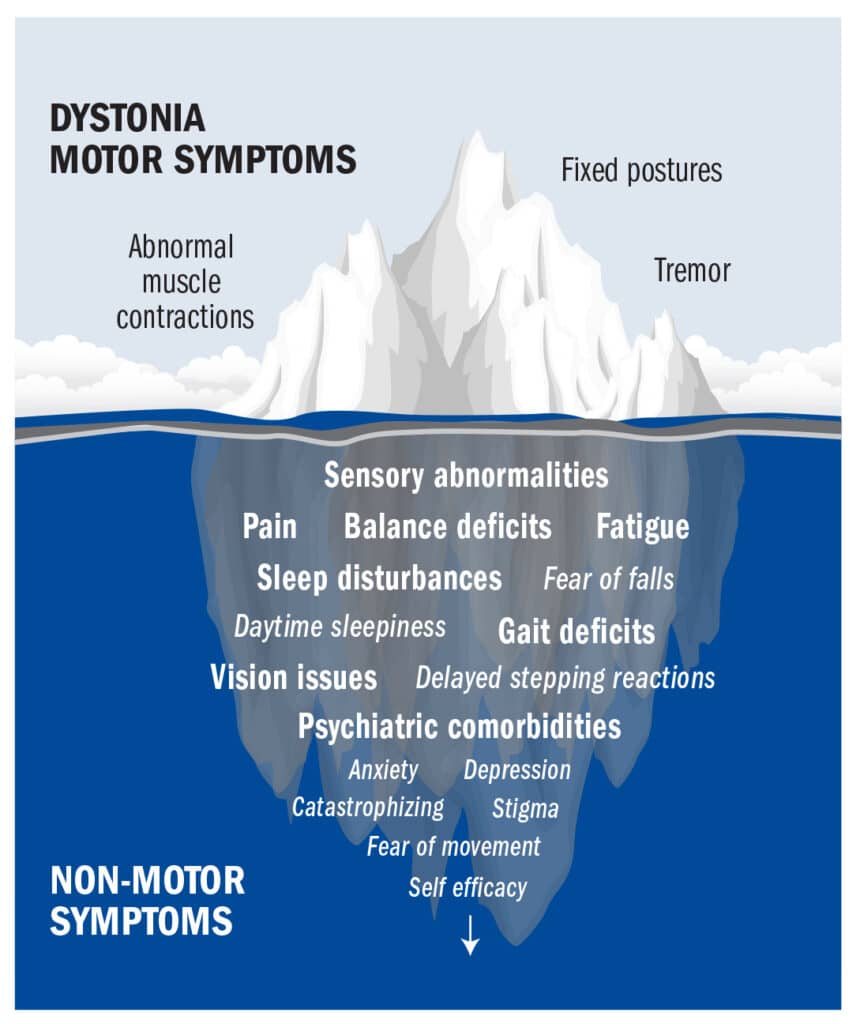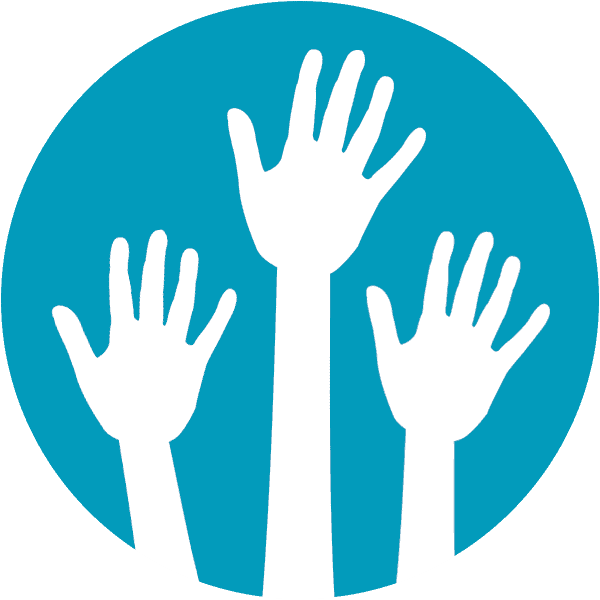Dystonia, Depression & Anxiety
This article was published in the Dystonia Dialogue.
Dystonia is a neurological disorder that causes excessive, involuntary muscle contractions. These muscle contractions result in abnormal muscle movements and body postures, making it difficult for individuals to control their movements.
People who live with dystonia may also experience a range of non-motor symptoms that dramatically impact daily activities and quality of life.

Anxiety and depression are among the most common non-motor issues seen in individuals with dystonia.
Studies have shown that as many as 70% of individuals with dystonia will experience depression and/or anxiety over their lifetime.
Anxiety and depression significantly worsen disability and quality of life in dystonia.The relationship between dystonia, depression, and anxiety is complex. Research demonstrates that in some cases, depression and anxiety may develop in response to dystonia. In other cases, they occur before the onset of dystonia and appear to be part of the dystonia syndrome.
Evaluating for and treating co-existing depression and anxiety disorders is an important part of a holistic approach to treating dystonia.
Reducing movement symptoms associated with dystonia may not always alleviate depression or anxiety.
Treatment options for depression and anxiety depend on the individual needs of the patient. Interventions may include lifestyle adjustments, self-help activities, cognitive behavioral therapy, other types of counseling, and/or a range of intensive psychological therapies.
To locate a mental health professional for help, ask your doctor, health insurance provider, or a professional organization such as the Anxiety and Depression Association . Or ask for recommendations from family and friends.
Image adapted from a figure in Bradnam, L.V., Meiring, R.M.,Boyce, M. et al. Neurorehabilitation in dystonia: a holistic perspective. J Neural Transm (2020).

The Dystonia Medical Research Foundation is a 501(c)(3) non-profit organization dedicated to advancing research for improved dystonia treatments and ultimately a cure, promoting awareness, and supporting the well-being of affected individuals and families.



